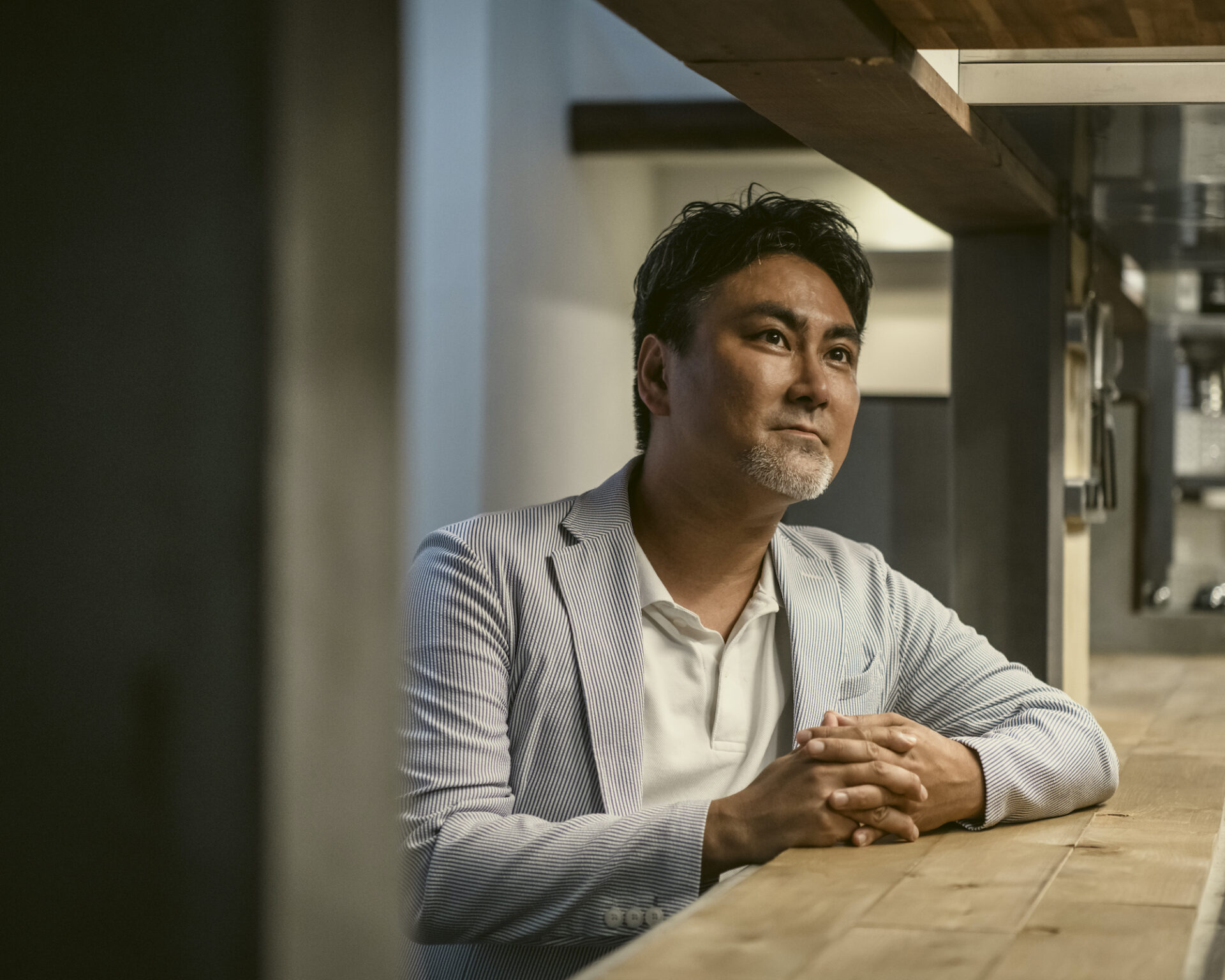
2024-11-21
Vol.12
NewsPicks Studios CEO
Shunsuke Kanaizumi(part 1)
-
GDP and Level of Happiness
-
Why Most People in Japan Think "Either is Fine"
-
Is the Japanese Marketing OK?
GDP has been considered an indicator of the country’s abundance. But now, this conventional wisdom is brought into question. Japan, the country that used to be the second largest economy in the world, has faced various issues, including a long stagnated economy, an aging society with a low birthrate, and growing economic inequality. As a result, the country ranks in the 50s in the World Happiness Ranking, behind countries such as Argentina and Kazakhstan. An ancient Greek philosopher, Aristotle, said the state exists to ensure the happy and honorable lives of its citizens, but if that is the case, is today’s Japan doing enough to ensure it? Inviting Shunsuke Kanaizumi, the CEO of NewsPicks Studios, which set its slogan to “Make the economy more interesting through the power of images,” as a guest, we talked about the hints to obtain abundance in an essential sense and idea of happiness that can not be measure by economic figures.
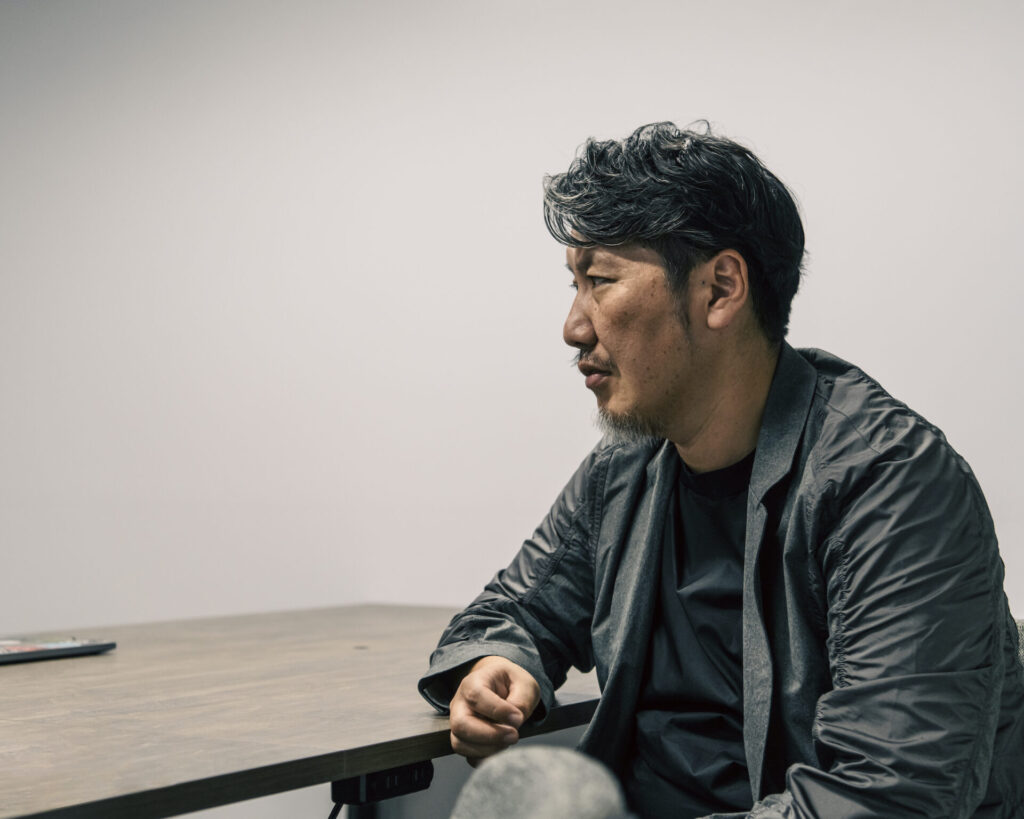
“If we only focus on happiness in the philosophical sense, the discussion can end up with nothing but a mere ideal.” (Shigeta)
——Did you hear about today’s theme in advance?
Shunsuke Kanaizumi: It’s GDP and happiness, right? I understand that it is a rather broad theme.
——In the GDP ranking, Japan dropped after Germany last year to fourth place, but it still ranks high. On the other hand, in the happiness rankings, it is placed last among the G7 countries. In the era when material abundance was equated with happiness, it was believed that there was a certain correlation between GDP per capita and happiness. Recently, however, the trend that the value of GDP does not always secure individual happiness has been getting stronger.
Kanaizumi: I think there is still a certain correlation. In fact, it is clear from the World Happiness Report published by the UN. However, it does not perfectly correlate, and the key point would be the difference created by it.
——When we think about the correlation between the two, we have the complex problem of the fact that the definition of happiness differs from individual to individual. While some people see being able to consume a lot with high earnings as a sign of happiness or affluence, others find happiness in their relationships with other people and active involvement in the community. I have the impression that the latter is increasing now.
Kanaizumi: Ultimately speaking, there is no definition of happiness that can be applied to everyone. Nevertheless, it is somehow calculated country by country or prefecture by prefecture. The reason for this is that there are targets for comparison. Happiness is something that exists within each of us, but it is always discussed in the context of comparison. This has been done since the era when Aristotle said, “True happiness is achieved through living a virtuous life and act of doing the right and moral thing.” This is what has continued since human beings became social creatures and gained the ability of imagination to compare themselves with others.
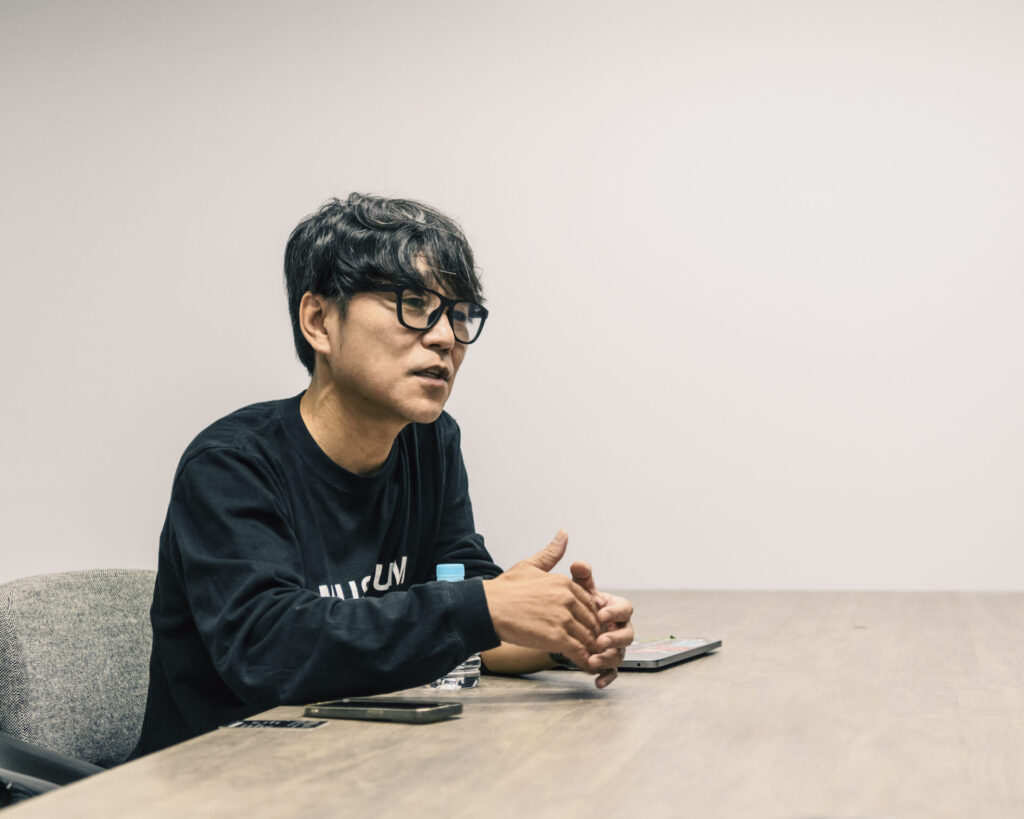
Masakazu Shigeta: I think there are two ways to approach the discussion of happiness. One is to think about happiness from a philosophical point of view. When the guests are artists or musicians, we often talk about happiness in this context, but if we only focus on it, the discussion can end up being mere idealism. People are confused, lost, and worried because they can not live only with philosophical thought. No matter how much we talk about ideals, as long as there are economic conditions and legal constraints, we can not do everything as we want. Rather, I feel ideals and reality get more and more disconnected.
Another approach is to think about happiness in an economic sense, which is exactly the theme of today’s dialogue. Some philosophers say we would be happier if we abolished the monetary system and became unbound by money any longer. However, in reality, our society is based on the monetary system, and the two are inseparable. Then, what is the essential, sustainable, and well-balanced relationship between happiness and the economy? When we talked before, you said you were interested in the relationship between GDP per capita and happiness, so I would like to discuss it in depth today.
This year, I had an opportunity to visit Finland and Denmark, which ranks 1st and 2nd in the world’s happiness ranking. When I went to Finland, I wondered why this country came first. I felt that the people there had a somewhat detached view of capitalism, and I couldn’t understand why living in this country was considered happy. On the other hand, Denmark is based on capitalism, and I could feel the atmosphere everywhere in the city. However, since the differences between the two are so stark, I lost my idea about what happiness means.

Kanaizumi: Probably, the percentage of people who think they are happy is high both in Finland and Denmark. Israel also ranked high, although the ranking has dropped after the outbreak of the war. I think religion plays a big role in this, and I have an impression that countries with high religiosity have a higher level of happiness in general. What would it be like if we were to make a hypothesis about the difference between Finland and Denmark?
Shigeta: For example, the communication style in Finland is very friendly. It is not unusual to begin a conversation with an old man who you met by chance in the sauna and end up talking for twenty minutes. Their basic attitude is like, “Let’s have a small talk.” From the point of view of capitalism, they are accustomed to “waste time.” On the other hand, I strongly felt the atmosphere that they did not force themselves to follow capitalism. For example, there are few people walking in the city in the early morning, the restaurants close in the early evening, and markets on Saturday and Sunday start late. However, if you ask me whether I was comfortable with the atmosphere there, I didn’t feel that much.
In Denmark, on the other hand, you can find restaurants open late at night and early morning, and there is a wide variety of shops. What I felt there was that the country has a high degree of freedom of expression. In fact, visiting the Danish Design Center and the Louisiana Museum of Modern Art was impressive. I had a strong impression that Denmark is a country with few barriers to freedom of expression. From this viewpoint, I thought the meaning of happiness would be totally different between the two countries.
Kanaizumi: Australia and Canada, which are both ranked high in the happiness ranking among the G20 countries, share characteristics that people inhabit sparsely in a large area, and the amount of natural resources per person is abundant. I think a high level of happiness is achieved in countries where people have a high level of mentality to enjoy such a lifestyle and, at the same time, capitalism works properly.
In the US, people in Hawaii, and in Japan, people in Okinawa are often referred to as having the highest level of happiness. Both have good weather and are surrounded by oceans. Although they are ranked lower in GDP per capita compared with other regions in the country, the level of happiness is high. Once you reach a certain level, whether or not you are able to accept nature will be one criterion for happiness.
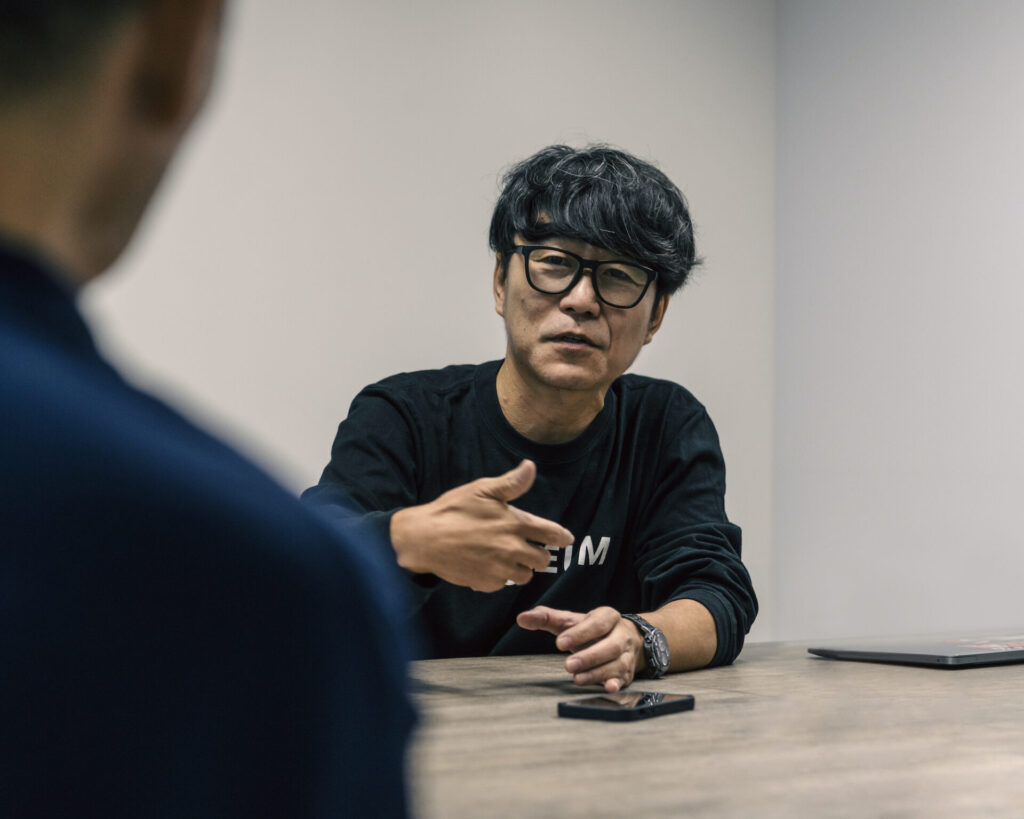
“‘Moderation’ is a part of Japanese culture. But Japanese people should make their attitude clear in decision-making situations in politics and business.” (Kanaizumi)
Shigeta: As we can see from the recent election, there is a strong tendency to judge things by all-or-nothing thinking between “agree” or “disagree.” However, there are few people who can clearly state that they agree or disagree, and the overwhelming majority are those who don’t mind either option. We can say the same thing about the level of happiness in Japan. When you are asked if you are happy or unhappy, very few people can give a clear answer, and the majority are neither of the two, actually. I am curious about what makes them lean towards either side and what factors influence it.
Kanaizumi: Religion and education probably influenced it. According to statistics, the number of people who are categorized as the so-called “silent majority” is very large in Japan. In the US, on the other hand, there are a few people who do not mind either way. This is because the idea of having a clear opinion of yes or no is thoroughly ingrained in American society. If we count people who think neither happy nor unhappy on the happy side, the happiness rank of Japan might possibly go up.
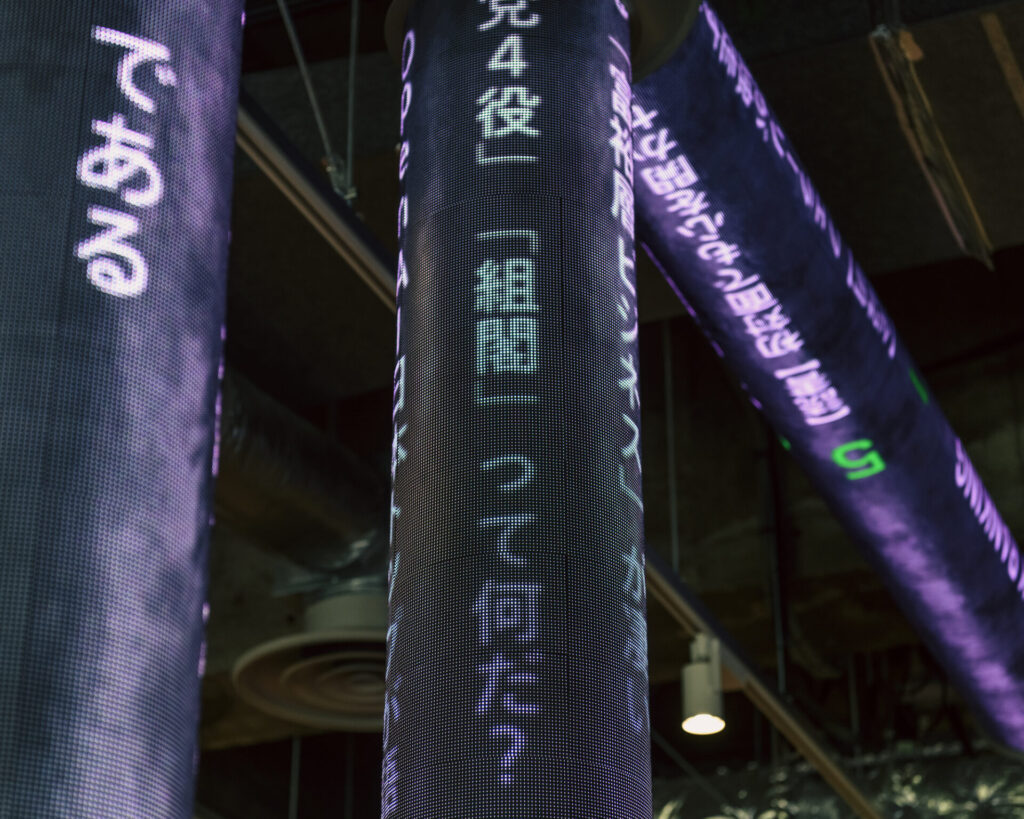
Shigeta: I think that the fact that there are many Japanese people who do not make their choices has something to do with the Japanese aesthetics that value “refindness” and “modesty” as virtues. Refraining from clearly mentioning yes or no has been respected as a cultural aesthetic.
Kanaizumi: Right, Japanese people have always valued “moderation” for a long time.
Shigeta: Some say Japanese people should follow the American way to express yes or no clearly. What are your thoughts?
Kanaizumi: “Moderation” is a part of Japanese culture. However, I think Japanese people should make their attitude clear in decision-making situations in politics, business, etc. Whether or not to place importance on “moderation” will depend on what you are working on.
For example, I relatively agree with the “Myna Health Insurance Card” and the review of employment regulations, which were the main issues in the LDP’s presidential election. If we leave the decision-making on these issues to “Silver Democracy,” which strongly reflects the opinions of elderly people, I think we may lead the next generation in a bad direction. The working generation and the young people should get together to lead the reform by clearly showing their yes or no. There is no time to consider “moderation” in this regard. If you try to please everybody, you can not make any progress.
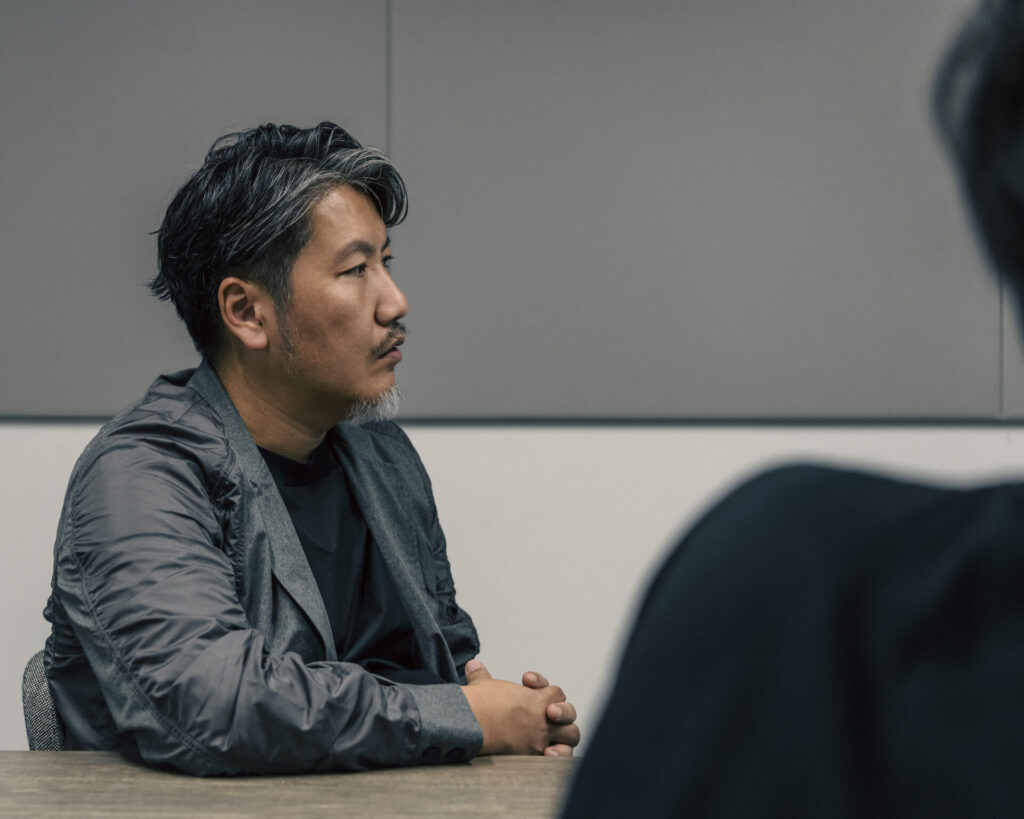
“I always worry whether Japanese marketing is really OK because they still have the mindset of researching and obtaining customers’ ideas, which is behind the times.” (Shigeta)
——In his policy speech, Prime Minister Ishiba said that the Japanese economy would not be able to keep going unless personal expenditure, which accounts for more than 50 percent of the GDP, increases.
Kanaizumi: I think Mr. Ishiba’s view that GDP will not increase unless income, consumer spending, and the ratio of exports is increased is not wrong. Japan is gradually losing its status as an exporting country. Germany is still strong in exports, with exports accounting for 40% of its GDP, while that of Japan accounts for less than 20%. Many companies have switched their production base from Japan to overseas and set up local subsidiaries. We see more and more capital flight by wealthy individuals, and the middle class also buys overseas investment trusts. If things continue as they are, the trend will only be accelerated. The government must want to do something about this.
Shigeta: Anyone could have predicted the current situation if companies continue to expand overseas. In his book “Saru ka suru Syakai (The World Where People Become More Monkey-Like),” Mr. Tatsuru Uchida points out that there are more and more people who think, “It is just fine as long I am happy now.” I always wonder why there are so many people who can not believe that the current action will have an impact on the future.
Besides the fact that the production base was relocated to countries outside Japan, are there any other reasons why Japan has become weaker in exports while Germany has stayed strong?
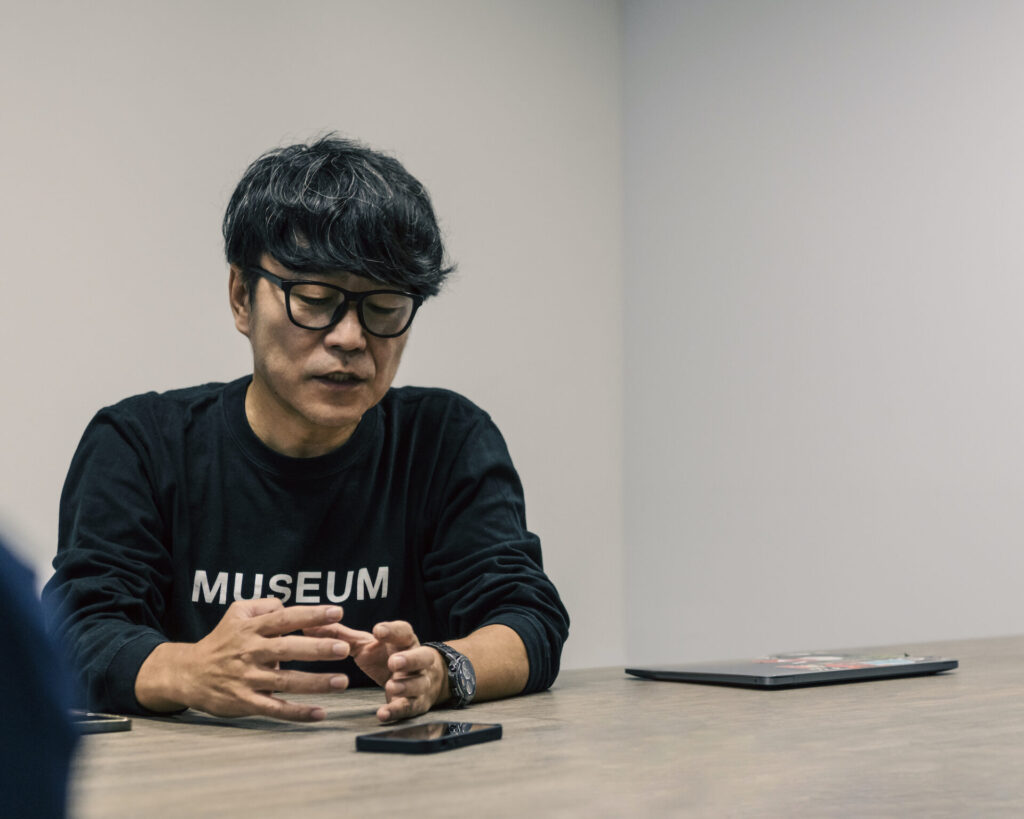
Kanaizumi: One of the reasons is that they accept immigrants to secure the labor force. They increase exports mainly to the EU region by ensuring the labor force and improving technology, especially in the manufacturing industry. The structure is one of the strengths of Germany. Although its population is less than three-quarters of that of Japan, the GDP is higher. The GDP per capita is higher than that of Japan by 3,000 dollars, and yet the working hours per individual are lower by 25%. These figures show how high their production efficiency is. I regard Germany as a country that has achieved reform. Although Germany is one of the defeated countries like Japan, it has made steady reforms and achieved German reunification. It also consistently improved productivity, including the improvement of added values such as brand power.
Shigeta: The difference in GDP between Germany and Japan has something to do with the creation of added value. The best example is the car industry. German cars obviously have higher added value.
Kanaizumi: Although Toyota is the top car manufacturer in terms of production volume, it loses to German cars in terms of added value.
Shigeta: I have an impression that commodity prices are higher in countries with high GDP per capita, including Finland and Denmark.
You can see many expensive items in furniture stores. I think countries that are good at creating added value can increase GDP by the same method. Japan is not good at it.
Kanaizumi: After all, Japan tends to gravitate towards cheaper. People have been doing business with the idea of “the customer is king.” Client first is OK, but if your product-oriented ability weakens,
you’re putting the cart before the horse.
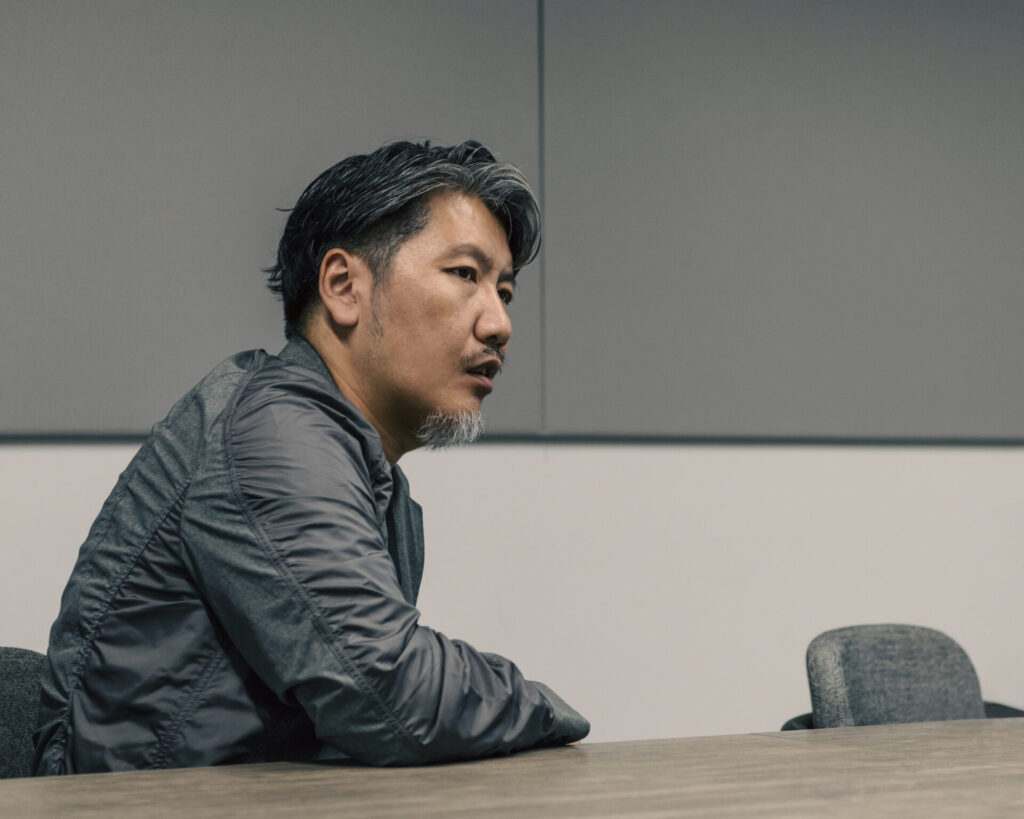
Shigeta: You can find the harmful effects of the “the customer is king” mindset in Japanese marketing. I always worry whether Japanese marketing is really OK because they still have the mindset of researching and obtaining customers’ ideas, which is behind the times. Once manufacturing becomes market-oriented, marketing methods never evolve. This is because as long as you provide the minimum information about the product, consumers pick it up. However, that is not what manufacturing should be. Manufacturing is something that people develop products based on strong beliefs and ideas.
In today’s manufacturing industry overseas, the mainstream idea is that, as Steve Jobs once said, “consumers do not understand what they want, and providing them with what they say they need does not work. Therefore, there is no point in market research.” However, in Japan, you do market research thoroughly, analyze the needs, and develop products by calculating market size. Marketing is used as just a tool to check if the market share was achieved as expected by the forecast. Breakthroughs and innovations can not be made by such an approach.
Kanaizumi: I agree with the opinion that Japanese marketing is weak.
There is a tendency for Japanese companies to frequently introduce changes in business models and products in the short term. But if you look at the global companies, those with strong marketing focus on how to sell the same products for a long time, and one of the examples is Apple. The housing design of their laptop, iPhone, and Apple Watch has stayed almost the same, right? Japanese manufacturers all withdrew from the PC market because they were preoccupied with constant changes in product models and could not build a competitive advantage. Another reason why marketing is not working in Japan is that, until recently, there has been a common belief that marketing is handled by the advertising department. In overseas companies, it is dealt with by the CMO and CEO, who are strong in marketing.
——Given that the idea of “the customer is king” or client-first is a Japanese culture, is there any situation that works in a positive direction?
Shigeta: It must be the industry that requires hospitality and services.
Mr. Noboru Takano, the former manager of the Japanese branch, played an essential role in introducing hospitality culture to Ritz-Carlton, which is now widely known for its services.
Kanaizumi: The high level of customer service in Japan is a good part of the idea of “The customer is always right” and the client-first mindset.
(to be continued in the second half)
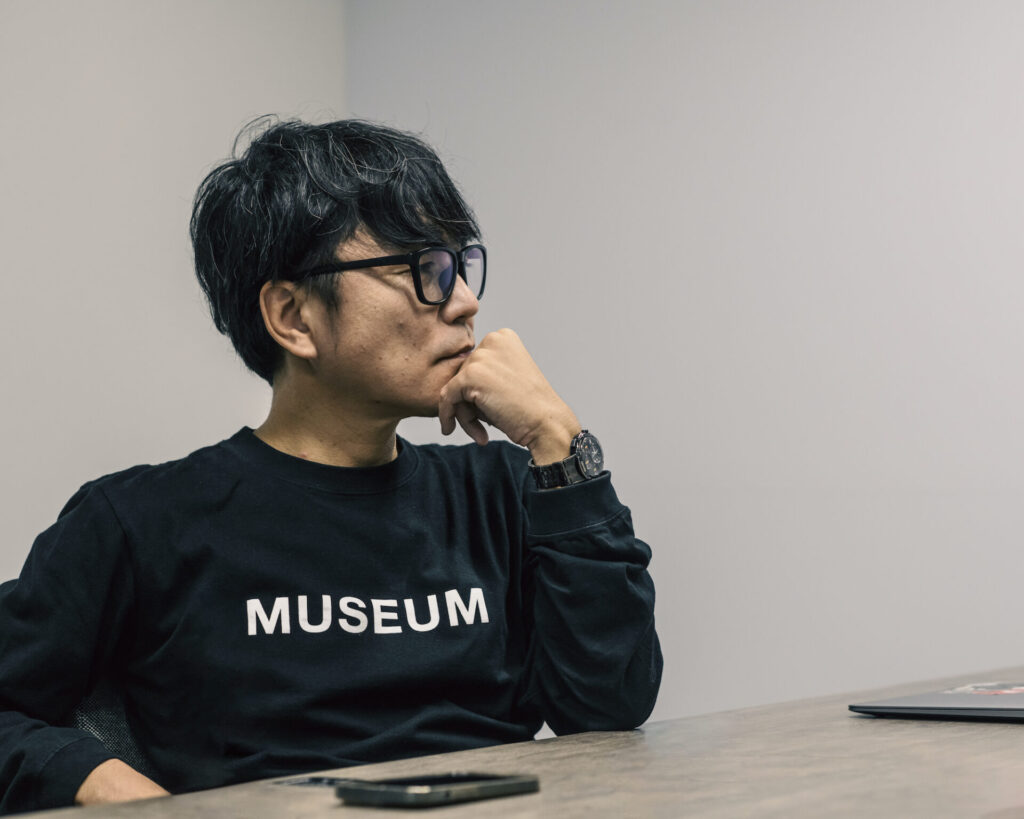
*1_GDP and GDP per capita
GDP stands for “Gross Domestic Product”. It refers to the total amount of the added value of goods and services produced by domestic economic activity in a specific time period. It is used as a numerical figure to indicate the scale of economic activities in a country or region. GDP per capita is the value calculated by dividing GDP by the population. It is considered an indicator of the average abundance of people in a country or region.
*2_The World Happiness Report
The World Happiness Report is a publication by organizations related to the United Nations. The report has been published annually since 2012, and the contents are based on research conducted in 143 countries worldwide. The report contains the rankings of national happiness measured by six variables: Social Support, GDP per Capita, Health Life Expectancy, Freedom to Make Life Choices, Generosity, and Perception of Corruption. As of 2024, Finland has been ranked the happiest country in the world for seven consecutive years, followed by Nordic countries such as Denmark, Iceland, and Sweden. The rank of Japan has dropped from 47th to 51st in the 2024 report.
*3_Saru ka suru Syakai (The World Where People Become More Monkey-Like)
“Saru ka suru Syakai” is a book written by philosopher Tatsuru Uchida, who is also known for his book, “Nippon Henkyo Ron (Japan as Marginal Region),” published in 2020. The word “Monke-Like” in the title indicates the attitude of people who do not mind the problems in the future if the immediate situation is satisfactory. Using this as the keyword, the author explains why Japanese people have become preoccupied with immediate profits without considering the future by referring to problems such as politics, education, and the declining population.
Profile
-
Shunsuke Kanaizumi
Kanaizumi was born in Tokyo in 1972. After graduating from the College of Economics at Rikkyo University, he started his career as a magazine writer. After engaging as an editor for information magazines and fashion magazines for females, he became an editor for weekly magazines. In 2011, he was appointed as the first producer of the online version of “Daily Spa!” and in 2013, editor-in-chief of “Weekly Spa!”. He joined NewsPicks in 2018, and after serving as the editor-in-chief, he became CEO of NewsPicks Studios in 2021. He also hosts “HORIE ONE,” a program where Takafumi Horie gives his sharp commentary on economic news.
-
Masakazu Shigeta
After working as an engineer in the music industry, Shigeta began his career as a cosmetics developer in 2001. Since 2004, he has produced a variety of cosmetics brands in the healthcare business of Nitto Denka Kogyo Co., Ltd., a metal surface treatment company founded by his great-grandfather.
In 2017, he founded “OSAJI,” a skincare lifestyle brand, and became the brand director. He also produced “kako,” a specialized shop for home fragrances perfume in Kuramae, Tokyo, in 2021, and a combined shop of “OSAJI”, “kako”, and a restaurant “enso” in Kamakura, Kanagawa, in 2022.
In 2023, using Nitto Denka Kogyo’s skills, he also produced a pottery brand, “HEGE.”Publications
Taberu Biyou (Eating for Beauty) (SHUFU TO SEIKATSU SHA, 2024)
42-Sai ni Nattara Yameru Biyou, Hajimeru Biyou (Beauty cares to quit and start when you turn 42) (Takarajimasha, 2022)
Information
NewsPicks Studios
Jointly established in 2018 by NewsPicks, an economical media outlet, and DENTSU, a major advertising agency, with the purpose of planning and producing post-text content centered on video content. It provides business people with content in various fields, including practical purpose, culture, and education, with the main focus on “the economy.” The main contents include “HORIE ONE,” hosted by Takafumi Horie, and “WEEKLY OCHIAI,” a talk show hosted by Yoichi Ochiai.
https://studios.newspicks.com/
-
Photographs:Eisuke Komatsubara
-
Text:Masahiro Kamijo
NEWS LETTER
理想論 最新記事の
更新情報をお届けします
ご登録はこちら
ご登録はこちら
メールアドレス
ご登録ありがとうございます。
ご登録確認メールをお送りいたします。

